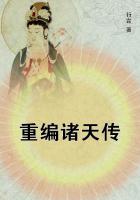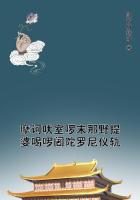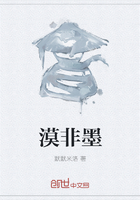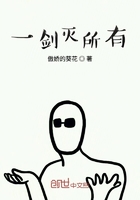Before I quit this subject I must defend Petrarch from one accusation which is in the present day frequently brought against him. His sonnets are pronounced by a large sect of critics not to possess certain qualities which they maintain to be indispensable to sonnets, with as much confidence, and as much reason, as their prototypes of old insisted on the unities of the drama. I am an exoteric--utterly unable to explain the mysteries of this new poetical faith. I only know that it is a faith, which except a man do keep pure and undefiled, without doubt he shall be called a blockhead. I cannot, however, refrain from asking what is the particular virtue which belongs to fourteen as distinguished from all other numbers. Does it arise from its being a multiple of seven? Has this principle any reference to the sabbatical ordinance? Or is it to the order of rhymes that these singular properties are attached? Unhappily the sonnets of Shakspeare differ as much in this respect from those of Petrarch, as from a Spenserian or an octave stanza. Away with this unmeaning jargon! We have pulled down the old regime of criticism. I trust that we shall never tolerate the equally pedantic and irrational despotism, which some of the revolutionary leaders would erect upon its ruins. We have not dethroned Aristotle and Bossu for this.
These sonnet-fanciers would do well to reflect that, though the style of Petrarch may not suit the standard of perfection which they have chosen, they lie under great obligations to these very poems,--that, but for Petrarch the measure, concerning which they legislate so judiciously, would probably never have attracted notice; and that to him they owe the pleasure of admiring, and the glory of composing, pieces, which seem to have been produced by Master Slender, with the assistance of his man Simple.
I cannot conclude these remarks without ****** a few observations on the Latin writings of Petrarch. It appears that, both by himself and by his contemporaries, these were far more highly valued than his compositions in the vernacular language. Posterity, the supreme court of literary appeal, has not only reversed the judgment, but, according to its general practice,reversed it with costs, and condemned the unfortunate works to pay, not only for their own inferiority, but also for the injustice of those who had given them an unmerited preference. And it must be owned that, without ****** large allowances for the circumstances under which they were produced, we cannot pronounce a very favourable judgment. They must be considered as exotics, transplanted to a foreign climate, and reared in an unfavourable situation; and it would be unreasonable to expect from them the health and the vigour which we find in the indigenous plants around them, or which they might themselves have possessed in their native soil. He has but very imperfectly imitated the style of the Latin authors, and has not compensated for the deficiency by enriching the ancient language with the graces of modern poetry. The splendour and ingenuity, which we admire, even when we condemn it, in his Italian works, is almost totally wanting, and only illuminates with rare and occasional glimpses the dreary obscurity of the African. The eclogues have more animation; but they can only be called poems by courtesy. They have nothing in common with his writings in his native language, except the eternal pun about Laura and Daphne. None of these works would have placed him on a level with Vida or Buchanan. Yet, when we compare him with those who preceded him, when we consider that he went on the forlorn hope of literature, that he was the first who perceived, and the first who attempted to revive, the finer elegancies of the ancient language of the world, we shall perhaps think more highly of him than of those who could never have surpassed his beauties if they had not inherited them.
He has aspired to emulate the philosophical eloquence of Cicero, as well as the poetical majesty of Virgil. His essay on the Remedies of Good and Evil Fortune is a singular work in a colloquial form, and a most scholastic style. It seems to be framed upon the model of the Tusculan Questions,--with what success those who have read it may easily determine. It consists of a series of dialogues: in each of these a person is introduced who has experienced some happy or some adverse event: he gravely states his case; and a reasoner, or rather Reason personified, confutes him; a task not very difficult, since the disciple defends hisposition only by pertinaciously repeating it, in almost the same words at the end of every argument of his antagonist. In this manner Petrarch solves an immense variety of cases. Indeed, I doubt whether it would be possible to name any pleasure or any calamity which does not find a place in this dissertation. He gives excellent advice to a man who is in expectation of discovering the philosopher's stone;--to another, who has formed a fine aviary;--to a third, who is delighted with the tricks of a favourite monkey. His lectures to the unfortunate are equally singular. He seems to imagine that a precedent in point is a sufficient consolation for every form of suffering. "Our town is taken," says one complainant; "So was Troy," replies his comforter. "My wife has eloped," says another; "If it has happened to you once, it happened to Menelaus twice." One poor fellow is in great distress at having discovered that his wife's son is none of his. "It is hard," says he, "that I should have had the expense of bringing up one who is indifferent to me." "You are a man," returns his monitor, quoting the famous line of Terence; "and nothing that belongs to any other man ought to be indifferent to you." The physical calamities of life are not omitted; and there is in particular a disquisition on the advantages of having the itch, which, if not convincing, is certainly very amusing.















